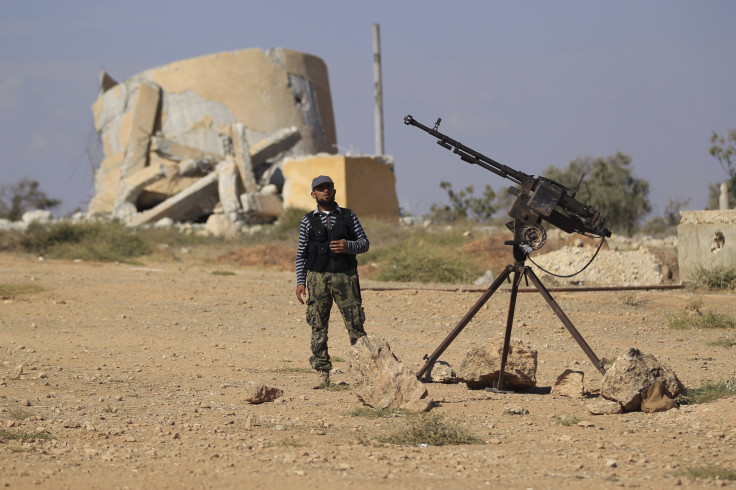In New Advance, Syrian Islamist Rebels Capture Key Army Bases In Idlib Province, Open Road To Damascus

In a series of intense clashes, Islamist factions in Syria have captured several army bases in Idlib province in the north, giving groups like Jabhat al-Nusra, the official al Qaeda offshoot in the country, access to a highway that leads directly to Damascus. The takeover of the bases is a significant gain for the rebels, who had tried to capture them several times in the last two years -- and who now have a straight route to the capital of Bashar Assad's regime.
The advance by Islamist rebel groups in Idlib underscores the growing U.S. fear that the moderate opposition rebels backed by the West are failing in the north.
The Syrian Observatory for Human Rights, a monitoring group in based in England, reported Monday that militants from a group called Jund al-Aqsa helped the al-Nusra fighters take the Wadi Deif and Hamidiyeh army bases in Idlib.
"Wadi al-Deif base is completely liberated after Assad's forces withdrew from all checkpoints hit by the mujahideen fighters," a Nusra-affiliated Twitter account said.
The capture of the army bases comes just one day after rebels took over seven government checkpoints in the area. A video uploaded by the Islamic Front -- yet another Islamist rebel group -- shows its fighters taking over the checkpoints. (Warning: graphic footage).
"We took over Wadi Deif completely," a commander from al-Nusra said in a video filmed after the battle. "All the factions have been trying to take over Wadi Deif for three years," he said, adding that for about a month and a half Nusra forces have been observing the base and "seriously attacking" it with large mortars. "We hit more than 40 points in Wadi Deif ... there is only one barrier left standing."
Meanwhile, the Syrian regime made advances north of Aleppo. The army seized an area just north of the country's largest city and killed more than 30 al-Nusra fighters.
Last week Secretary of State John Kerry said the U.S. was engaging in new efforts to save the Syrian moderate rebels in the north of the country from total defeat. Those rebels, he said, "did not fare well in their battles and one or two of them folded into al-Nusra, which is disturbing." The rebels are, according to Sen. John McCain, R-Ariz., a prominent backer of theirs, "on the verge of collapse."
Last month International Business Times reported that the U.S. had scaled back its arms shipments to several groups in the north because of their defeat by Islamist organizations such as al-Nusra. The Syrian Revolutionary Front and Harakat Hazzm, two major beneficiaries of U.S. arms aid that fight under the umbrella of the Free Syrian Army, have suffered major losses in the past several months at the hands of Islamist militant groups like al-Nusra. Syrian opposition members affiliated with the groups, who requested anonymity, said U.S. weapons shipments have stopped.
U.N. peace envoy Staffan de Mistura has drafted a plan to freeze the fighting in Aleppo to try to get humanitarian assistance into the city. The European Union said Monday that it would support de Mistura's plan.
“The EU is committed to fully support ... de Mistura’s efforts to achieve a strategic de-escalation of violence as a basis for a broader sustainable political process,” EU foreign ministers said in a statement after discussing the plan in Brussels. But the moderate opposition refused to sign on to the plan, claiming that it is too risky and could lead to them losing their position in the city.
De Mistura warned that the fall of Aleppo to the regime would force an additional 40,000 Syrians to flee their homes. For the moderate rebels, who lost the key city of Homs in May, losing Aleppo would be a blow that might put their survival as a fighting force in jeopardy.
© Copyright IBTimes 2025. All rights reserved.





















